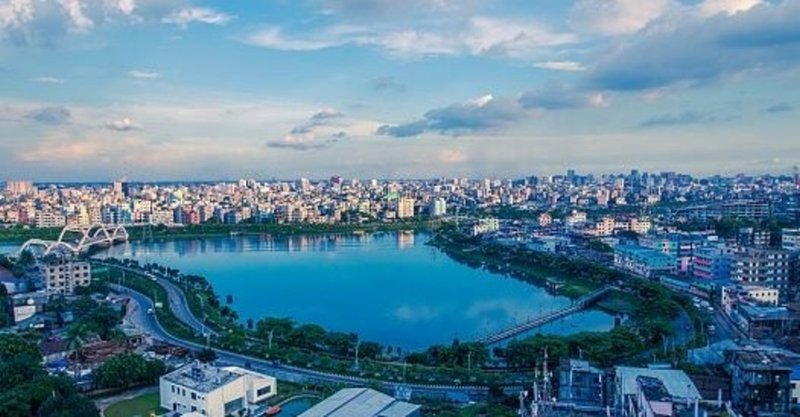
CULTURE OF BANGLADESH:
Before starting to talk about the culture, it’s important to know that Bangladesh is a combination of the Bengali words, Bangla and Desh, and that means “the country or land where the Bangla language is spoken”. Before the country was known as East Pakistan.
Bangladesh divides the Bay of Bengal in south Asia. To the west and north it is close to India; to the southeast, is close to Myanmar.
FOOD FOR EVERYDAY:
Rice and fish are eaten every day. Fish, meats, and vegetables are cooked in spicy curry sauces called torkari. Inside the curry there is cumin, coriander, cloves, cinnamon, garlic, and other spices. Muslims do not eat pork and Hindus do not eat beef. Ruti, a whole wheat round flatbread, is eaten in the morning, with curries from the night before. Also important is dal, a thin soup based on ground lentils, chickpeas, that is put over rice. A sweet homemade yogurt is eaten as dessert. A meal is made of a large bowl of rice with small portions of fish and vegetable curries. Breakfast is the meal that changes from time to time, and people will eat rice- or bread. A favorite breakfast food is panthabhat, leftover cold rice in water or milk mixed with gur which is palm sugar. Food is eaten with the right hand by mixing the curry into the rice and then putting together portions with the fingertips.
For snacks people will have fruits like bananas, mango, and jackfruit, but also puffed rice and small fried food.
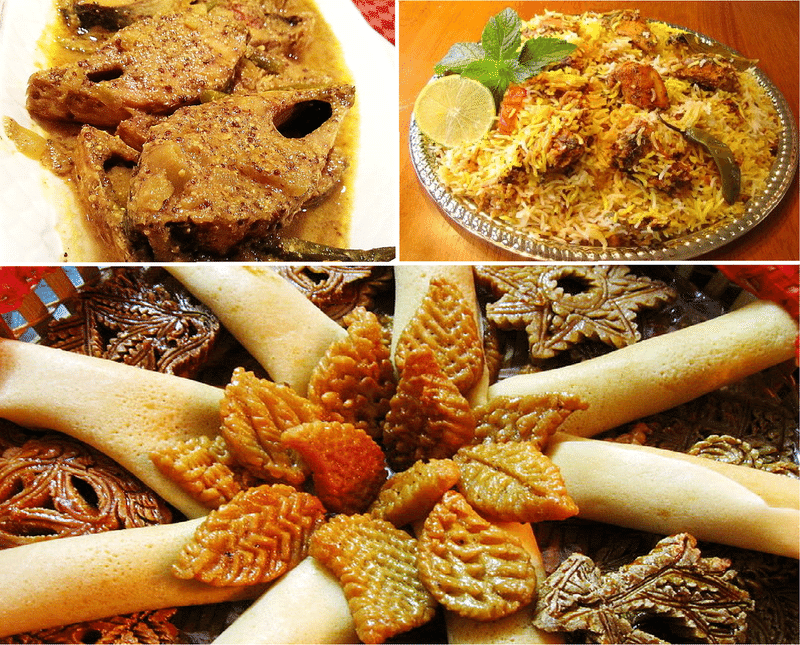
FOOD FOR IMPORTANT OCCASIONS:
At weddings and on important holidays, food is very important. During a holiday or formal celebrations, guests are encouraged to eat a lot. At weddings, a common food is biryani, made with rice, lamb or beef and a mix of spices, like saffron. On special occasions, the rice used is one of the finer, smaller types. If biryani is not eaten, a lot of different plates are served: different foods are added to one's rice bowl after the food from before is finished. A full dinner will have chicken, fish, vegetable, goat, or beef curries and dal. The final bit of rice is finished with yogurt ( doi ).
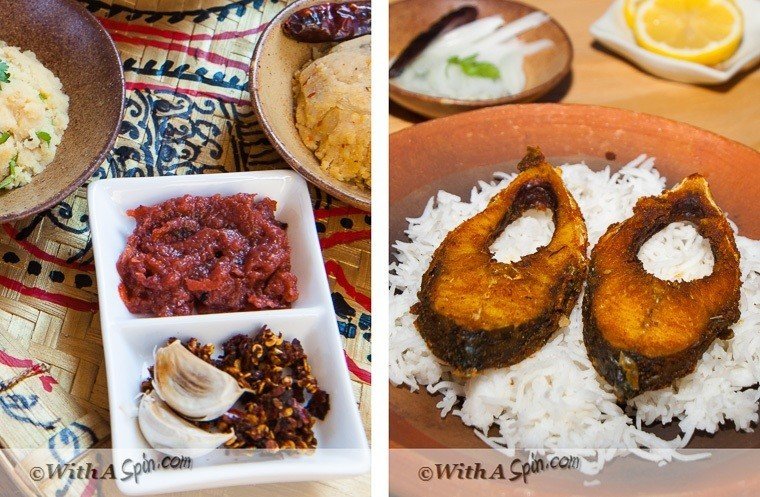
ETIQUETTE:
Talks begin with the word Assalam Waleykum ("peace be with you"), to which answer will be, Waleykum Assalam ("and with you"). Between Hindus, the correct word is Nomoshkar, and the hands go together under the chin. Men may shake hands if they are of the same status but do not hold hands too strongly. Respect is shown after a handshake by putting the right hand over the heart. Men and women do not shake hands with each other. The more two people are from a similar status, the more they will stand or sit close to each other when they speak. Before people leave, they will say Khoda Hafez. Differences in age and status are shown in the way things are said. People with higher status are not called by their personal name, but a title or honorific word is used.
Guests are always asked to sit, and if there are no chairs, a low chair or a bamboo mat is given. It is considered bad for a visitor to sit on the floor. It is also important that the person who made the invitation to the house, offers guests something to eat.
RELIGION:
The symbols and sounds of Islam, like the call to prayer, can be seen in the daily life. Bangladeshis will have ideas themselves and others in connection to their religion. For example, for them the nationality of foreigners is not as important as their religion.
Islam is a part of everyday life in all parts of the country, and every village has a small mosque and an imam, a cleric. Prayer is done five times every day, but not everyone will do that. Friday afternoon prayer is the only time that mosques become crowded.
Around the country there is a belief in spirits that live in natural spaces like trees, and riverbanks. These beliefs come from Islamic religious authorities.
Hinduism follows different gods, like Krishna, Ram, Durga, Kali, and Ganesh. Bangladeshi Hindus pray a lot to the female goddess Durga, and rituals done for her are the most celebrated.
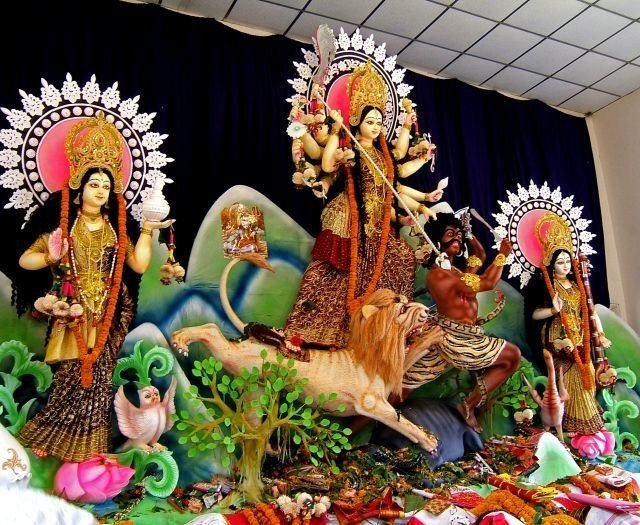
CELEBRATIONS:
Ekushee, on the 21 February, also called Shaheed Dibash, is the National Day of Martyrs, and people will remember those who died defending the Bangla language in 1952. Political talks are organised, and a memorial service will be done at the Shaheed Minar that is the Martyr's Monument in Dhaka. Shadheenata Dibash, or Independence Day on the 26 March, is the day when Bangladesh was separated from Pakistan. The event is organised with military parades and political talks. Poila Boishakh, the Bengali New Year, is celebrated on the first day of the month of Boishakh, usually around April. Poems’ readings and musical events are done around that time. May Day on the 1st of May, celebrates labor and workers with speeches and cultural events. Bijoy Dibosh, or Victory Day on the 16th of December, remembers the day in 1971 when Pakistani forces gave up to a group of Bangladeshi–Indian forces. Cultural and political events are organised.
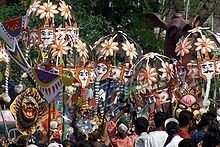
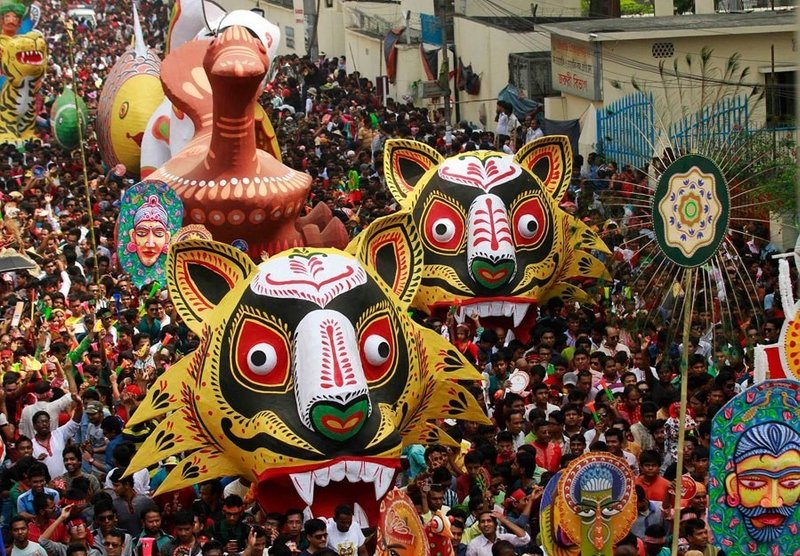
THE ROLE OF WOMEN AND MAN IN A FAMILY:
Women take care of the house and are not encouraged to move outside the close neighborhood alone. Because of this, most women's economic and social lives focus on the home, children, and family. Islamic practice will have prayer inside the mosque for males only; women practice religion at home. Bangladesh has had two female prime ministers since 1991, both elected with popular support, but women are not generally publicly active in politics.
Men are the heads of their households and have to work outside the home. Men often do the majority of the shopping. Men also spend a lot of time socializing with other men outside the home.
Society gives more power to men in nearly every area of life, but some women had important positions of political power at the national level. For ordinary women, movement is not much, education is not considered as important for them as it is for men, and a woman's father, older brother, and husband will have more authority.
